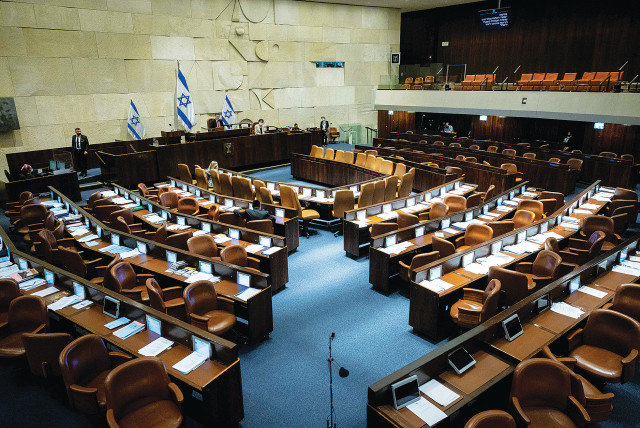What is to be expected as the Knesset begins its summer session? - explainer

The top item soon to be on the Knesset's agenda during the summer session is the haredi conscription law, which the government pledges in a filing to the High Court of Justice.
Israel’s parliament (Knesset) opened its summer session on Sunday after six weeks of recess. The session will run until July 28, after which the Knesset will recess for three months, returning on October 27.
The top item soon to be on the Knesset’s agenda during the summer session is the haredim conscription law, which the government pledged, in a filing to the High Court of Justice, that it would pass by the end of the summer’s assembly.
The bill may be met with legal challenges right out of the gate. After failing to come up with a compromise on the issue of haredi IDF service, Prime Minister Benjamin Netanyahu decided last week to move forward with a bill that passed in a first reading in the Knesset in 2022 during the Lapid-Bennett government.
The Office of the State Attorney ruled last week that the government could not initiate the process to resume this bill since it was no longer relevant to today’s reality and, therefore, lacked professional foundations.
The government's plans to approve the measure
The government intends to approve the measure regardless, next Sunday. The attorney general is the authorized interpreter of the law for the government, and it remains to be seen whether the Knesset’s legal advisory team will allow the law to hit the Knesset floor after the government ignored the attorney general’s ruling.
Further, with Minister-without-Portfolio MK Benny Gantz threatening on Saturday to leave the government by June 8, another possible major piece of legislation in the Knesset could be a law proposal to dissolve the Knesset and head to an election.
Alternatively, Gantz may try to replace the existing government with an alternate one without having to go to an election in a Knesset process called “constructive no-confidence.”
This process would require the support of at least 61 Knesset members.
The Knesset currently has 27 committees, 15 of them statutory. Committees can meet on Sunday through Thursday, with each committee chair responsible for setting its agenda. Most committees include between 13 and 17 members of the Knesset.
The Knesset plenum convenes three times a week, on Monday and Tuesday at 4:00 p.m. and on Wednesdays at 11:00 a.m. Bills that are approved in the committees are voted on in the plenum.
Each bill must pass three readings, or votes, in the plenum before becoming law.
Jerusalem Post Store
`; document.getElementById("linkPremium").innerHTML = cont; var divWithLink = document.getElementById("premium-link"); if (divWithLink !== null && divWithLink !== 'undefined') { divWithLink.style.border = "solid 1px #cb0f3e"; divWithLink.style.textAlign = "center"; divWithLink.style.marginBottom = "15px"; divWithLink.style.marginTop = "15px"; divWithLink.style.width = "100%"; divWithLink.style.backgroundColor = "#122952"; divWithLink.style.color = "#ffffff"; divWithLink.style.lineHeight = "1.5"; } } (function (v, i) { });

